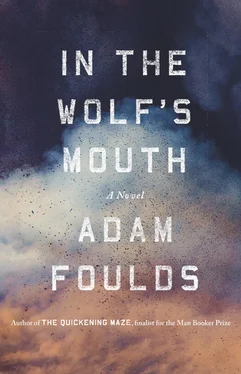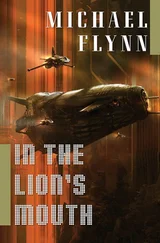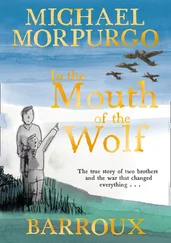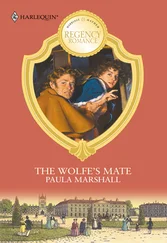Will’s eyes were heavy. The book was wilting towards him. He righted it again. The words began to slide and repeat tired and happy and miles from home suddenly and silently Talk about your old river!
Ray had said that he didn’t want to go looking for a girl. He didn’t want the feeling afterwards. A sweet girl to hold him and kiss: that was one thought, a persistent fantasy, astonishing and delighting, that flooded his chest until he wanted to cry. He remembered his story about the office girl on the bench, her wide hopeful eyes, the small turn of her head. That buzzing, swarming feeling. But that was not what he would find. Instead, the girls were sick and poor and hungry. Talking to some of the locals, he learned that their parents sent out these girls. They needed the money or gifts to survive.
Instead, Ray sat on his bed and looked at his old movie magazine. He looked at the face of Claire Trevor, the pale smooth skin of her cheek, and imagined the cool soapy smell of it. Or perhaps she wore perfume. You would get close and inhale flowers. Her face was perfectly still. Bam, just that one instant. Her hair and make-up and her face in that precise expression. Her small breasts pushed out the white fabric of her jersey. Ray looked closer, bringing the page to his face. Her breasts were defined by gradations in colour, the white turning to blue underneath and between them. The colours were made by the tiniest dots of ink. The white dots turned blue. Up higher, the dots were pink and yellow to make her neck, red for her lips. Tiny white dots were separated by narrow channels of blue and black dots and they made her teeth. Ray panicked suddenly. Claire Trevor wasn’t there any more. She was sinking away from him like water into sand, the way men died, just pouring away.
Ray crushed his eyes shut. He shook his head. This wasn’t good. His mind kept doing this. It was like missing a stair. He kept falling. He reached out for George. He said his name out loud, ‘George. George, if you’re alive or dead.’
Everything was the same and different. The streets were the same but the scale was wrong or more right than Cirò could remember. There was a slow, strenuous reconciling of his memories with the real world of Sant’Attilio that felt almost physical, his mind compressed here, released there. As soon as they had arrived, Cirò wanted to be rid of his Americans so as to concentrate on this process of arriving. He looked for people he recognised but the young boys on the streets were of a generation that would have heard of him, probably, but would never have seen him. They didn’t see him. He’d left in a coffin and come back invisible, a ghost returned to haunt them.
Finally he saw a familiar face, Jaconi Battista standing in the doorway of his little shop. It was definitely him although the intervening years had done what they could to disguise him, blurring his face, tearing his hair in handfuls from his head. And Cirò saw Jaconi seeing him. He saw him straighten up and step back a little. Cirò shouted to the driver to let him down. ‘I need to speak to someone.’
Major Kelly said to him, ‘You know where this town hall is?’
‘Sure I do. I’ll see you there.’
He stepped with his own feet onto the ground of Sant’Attilio.
Jaconi was gone. Cirò went after him through the door of the shop. Still the same. Sacks of rice and lentils, a few tins of food, some flaking dry vegetables. No meat. The trays were empty. Cirò couldn’t smell the cold metallic smell of puddled blood and flesh that he remembered. Jaconi stood behind the counter, biting a fingernail. Cirò asked him, ‘What’s the matter, no meat?’
‘Nothing. I have nothing.’
‘How can that be true? No animals on the hills? What’s going on here? Anyway, don’t worry. That’s going to change now.’
Jaconi laughed. ‘Sicilians won’t be poor any more? You forget what it’s like here when you were in America?’
Cirò stared at him until the laughter had drained out of Jaconi’s face completely. He decided to play with him, demanding from him what he already knew. ‘Where’s Teresa?’ he asked.
‘Cirò, it’s been so many years.’
‘I know how many years it’s been. I counted every day.’
‘We all thought you were dead.’
‘Where is she?’
‘So much changed. It was so long.’
‘Where is she?’
Jaconi covered his face with both hands then dropped them, sighing. ‘You remember Silvio who lives up from the church?’
Cirò didn’t respond. He himself stood very still. He’d meant to frighten Jaconi, to torture him, but he was having trouble standing upright. Cirò hadn’t thought that hearing these words from someone who had been in Sant’Attilio all the time he was away would actually wound him so much. Jaconi couldn’t look at him. He hung his head and said at the floor, ‘After four years she …’
‘Shut up! Shut your filthy fucking mouth!’
‘Cirò, we thought you were dead.’
‘I’m not dead. I’m not the one who’s dead.’
Walking up to the square and past the church, Cirò saw that blind Tinu was still in the doorway. That was unbelievable. He’d been an old man when he’d left. His beard was pure white now, his cheeks sunken. Shimmying in their sockets, his upturned eyes were the same milky blue. Mother Mary must be caring for him. His open mouth mumbled as though talking with her. His limbs were withered as a thorn bush but he was still there.
Children were playing in the little street. One of the older boys, a lad of fifteen or so who wasn’t playing, stood watching with his arms folded. Surely he looked like Teresa. Over a faint first moustache, he had her sleepy, curled snail shell of a nose. And the flat hairline across his forehead. This was like a dream. Cirò walked up to him. The boy backed away but not quickly enough and Cirò grabbed his wrists.
‘Who’s your mother?’
‘What?’
Those were her eyelashes, fluttering with terror. ‘Her name. What’s your mother’s name?’
‘Teresa Santangeli. You’re hurting my arms.’ The boy was stronger than Cirò would admit, twisting and complicating his grasp.
‘And who’s your father?’
‘Silvio …’
‘No.’ Cirò interrupted him. ‘No. Wrong. He isn’t.’ Cirò pushed him away.
Out of the brightness of the street, Cirò shoved into the darkness of the little house. As he blinked he heard Teresa shout, ‘So, did they have any rice?’
‘I don’t know,’ he shouted back.
He heard footsteps. Teresa entered the room slowly, a hand over her mouth, her eyes wide. ‘You,’ she said. ‘Jesus Christ. Sweet Jesus Christ and Mary. It’s you.’
She looked shorter than he remembered, perhaps because of the weight she had gained. She looked like a solid little Sicilian woman, a wife and mother.
‘Yes, it’s me.’
Teresa held the sides of her face.
‘I’m back.’
‘I see. I see that.’
‘I’m back now so things will go back to the way they were before.’
‘Cirò, I have children with this man. I have two children who are dead, even. It’s been a long time. I was a widow.’
‘How can you be a widow, Teresa, when your husband is still alive?’
‘But you weren’t alive, Cirò.’
‘I was always alive. Do you think I should stand for this, for the shame you’re bringing on me? People will know that I’m back now.’
‘After how long? Twenty years?’
‘And now I’m here and things are going to be how they were and you are still my wife.’
‘But … but … You can’t, Cirò. The children. He didn’t know.’
‘The children will have a father.’
Читать дальше












